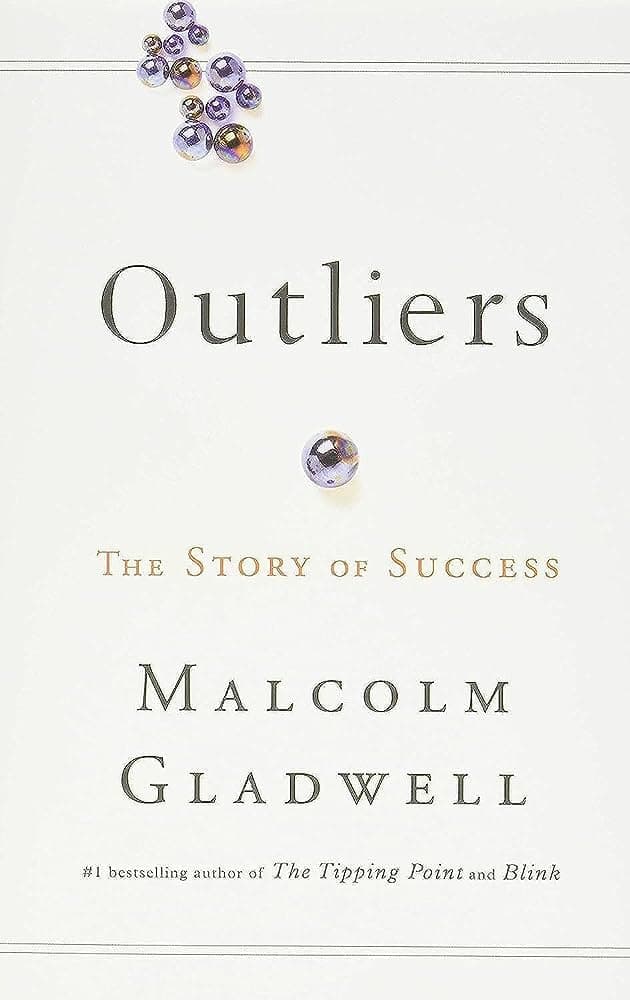Outliers - The Story of Success

The book Outliers examines what leads certain individuals to extraordinary success. Gladwell argues that success rarely comes from talent and hard work alone. Factors such as date and place of birth, family background, opportunities received, and pure luck often play an equally crucial role.
Some cases analyzed:
-
Canadian hockey players born early in the year are more likely to succeed because they are older and more physically developed than their peers in the same grade, as the cutoff date is January 1st.
-
Asian languages like Chinese facilitate the learning of mathematics due to their more logical numerical systems. This helps explain the excellence of Asian students in mathematics. Eleven and twelve in Western languages do not represent the number (10+1) as well as in Asian languages. The same applies to fractions; 1/3, one-third, is "three take away one" for Asians.
-
Lawyer Joe Flom was lucky to be born in a small generation, being Jewish (prevented from entering traditional law firms), and specializing in hostile takeovers before they became common.
-
The rice culture in Asia emphasizes hard work and education. This influences habits such as long hours of study, which is fundamental for academic success.
-
Korean Air drastically improved its safety when it adopted more horizontal cockpits, allowing co-pilots to question authoritarian commanders.
The 10,000-hour rule is one of the central concepts presented in Outliers. Gladwell argues that true mastery in any field requires about 10,000 hours of deliberate practice.
He cites research showing that elite experts in fields as diverse as music, sports, chess, and computer programming typically accumulated at least 10,000 hours of focused training. Some examples from the book:
-
Bill Gates had early and extensive access to computers, allowing him to accumulate 10,000 hours of programming practice before even entering college.
-
The Beatles played for long hours in nightclubs in Hamburg early in their career, greatly improving their skills before becoming famous.
-
Great classical musicians, like Mozart, typically had the opportunity to practice intensely from a very young age, accumulating their 10,000 hours in adolescence.
Gladwell emphasizes that practice must be deliberate - focused, structured, and aimed at improving performance. Experience or time spent on the activity is not enough.
The idea of 10,000 hours highlights a key theme of the book: extraordinary success requires substantial opportunities to develop skills, often through pure luck or circumstance. Innate talent, although necessary, is insufficient on its own.
Although the 10,000-hour rule has been criticized by some as too simplistic, it underscores the importance of intensive training and opportunity in developing mastery. Elite success is almost always preceded by a great deal of hard work.
In summary, Gladwell shows that factors beyond an individual's control are vital in explaining extraordinary success. Life circumstances profoundly shape our opportunities.


